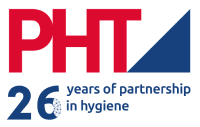FSSC 22000 Certification: Your Comprehensive Guide to Modern Food Safety
Food safety is one of the most critical factors for success in the food industry. As consumers become increasingly aware and regulatory authorities tighten their requirements, you as an entrepreneur face the challenge of not only meeting minimum legal standards, but demonstrating true excellence in food safety.
FSSC 22000 certification has established itself as the leading international standard that meets these requirements. It is a systematic approach to ensuring food safety that is fully recognised by the Global Food Safety Initiative (GFSI).
Are you wondering whether FSSC 22000 is relevant for your company? Let us take a look at the most important aspects of this standard together and understand how it can strengthen your food safety strategy.
Understanding the basics of FSSC 22000
FSSC 22000 (Food Safety System Certification) is based on a well-thought-out three-pillar model that combines proven international standards with specific industry requirements. This structure makes the standard both robust and flexible enough to meet the diverse needs of different companies.
The first pillar is ISO 22000:2018, which serves as the international standard for food safety management systems. This standard establishes a systematic approach to identifying, assessing and controlling food safety risks. It creates the necessary structure for continuous improvement and ensures that food safety is not left to chance, but is systematically controlled.
The second pillar comprises the sector-specific preventive programmes (PRPs) of the ISO/TS 22002-X series. These technical specifications take into account the specific requirements of various areas of the food industry. Whether you are involved in meat processing, beverage production or packaging manufacturing, the relevant PRPs address the specific risks and control measures of your sector.
The third pillar consists of additional FSSC-specific requirements that go beyond ISO standards. These additional requirements address modern challenges such as food defence to prevent deliberate contamination, food fraud to combat food fraud, and the development of a robust food safety culture within the company.

FSSC 22000 Version 6: Evolution through integration
With the implementation of version 6 in April 2024, FSSC 22000 has responded to important developments in the food industry. This further development demonstrates the standard’s adaptability to changing market conditions and social expectations.
A key innovation is the increased integration of the UN Sustainable Development Goals (SDGs) into food safety management. Version 6 recognises that food safety and environmental responsibility are increasingly linked. Companies must now systematically consider how climate change and environmental factors can influence their food safety risks.
The expanded requirements for the use of recycled packaging materials reflect the growing importance of the circular economy. Companies must implement detailed controls to ensure that recycled materials do not introduce additional contamination risks.
Particularly noteworthy are the stricter requirements for combating food fraud. Version 6 calls for a more systematic approach to identifying and preventing food fraud, including enhanced supplier evaluations and improved traceability systems.
Since the transition phase to version 6 has already been completed, companies that begin implementation now will benefit from proven practices and clear guidelines without the uncertainties of a transition period.
Practical benefits for your business
The implementation of FSSC 22000 brings concrete improvements in various areas of the company. These benefits go far beyond mere compliance and create real added value for your organisation.
In terms of market development, GFSI recognition of FSSC 22000 opens up access to international markets and large retail chains. Many major customers accept FSSC 22000 as proof of adequate food safety standards, reducing the need for multiple audits and certifications.
Operationally, a structured approach to risk management leads to more stable production processes. The systematic identification and control of hazards typically results in more consistent product quality.

Areas of application and industry relevance
FSSC 22000 demonstrates its strength in its broad applicability across the entire food value chain. This versatility makes the standard a strategic choice for various types of companies.
In primary production and processing, meat processing companies benefit from specific microbiological control measures, while dairy companies appreciate the comprehensive requirements for temperature control and hygiene. Fruit and vegetable processors use systematic approaches to control chemical and physical contaminants.
The beverage industry has recognised FSSC 22000 as particularly valuable, as the standard takes into account the specific requirements of both alcoholic and non-alcoholic beverages. The specific requirements for water safety and plant hygiene are particularly relevant here.
Beyond direct food production, the benefits extend to packaging manufacturers, who use the standard to ensure that their materials do not pose any contamination risks. Transport and logistics companies implement FSSC 22000 to guarantee product integrity throughout the entire supply chain.
FSSC 22000 is also used in retail and catering. Large retail chains with their own production facilities use the standard for uniform quality assurance, while restaurant chains and catering companies benefit from the structured requirements.

The implementation process: structured and systematic
A successful FSSC 22000 implementation follows a proven pattern that is tailored to the specific needs of your company. The process begins with a comprehensive gap analysis that compares the current status with the requirements of the standard.
The development of the necessary documentation should be practice-oriented, reflect the specific circumstances of your company and at the same time meet the standards.
The development and implementation of preventive programmes requires special attention. These programmes must be based on a thorough analysis of the specific risks to which your company is exposed. A superficial adoption of generic programmes rarely leads to the desired success.
Training and raising awareness among employees is a critical success factor. Food safety is a joint task that requires the commitment of all those involved. Developing a robust food safety culture takes time and continuous reinforcement of key messages.
Internal audits not only serve as preparation for the certification audit, but also become a valuable tool for continuous improvement. They help to identify weaknesses and uncover opportunities for improvement.
FSSC 22000 in the context of other standards
The decision to adopt a food safety standard should be based on sound considerations. Compared to regional standards such as the International Featured Standard (IFS) or the British Retail Consortium (BRC) Standard, FSSC 22000 offers a stronger international focus. This global perspective is reflected not only in its worldwide recognition, but also in the composition of the stakeholders involved in its further development.
The flexibility of the standard allows for company-specific solutions within a robust framework. While some standards take a very rigid approach, FSSC 22000 offers scope for tailor-made implementations without compromising system integrity.
The basis on ISO standards makes integration with other management systems much easier. Companies that are already certified according to ISO 9001 or ISO 14001 will find FSSC 22000 a good addition to their existing certifications.

PHT Group: Hygienic fundamentals for FSSC 22000 success
The successful implementation of FSSC 22000 depends crucially on the creation of hygienic production environments. The PHT Group supports companies in creating the hygienic conditions necessary for successful FSSC 22000 implementation. The combination of personal and operational hygiene results in comprehensive hygiene concepts that are already contributing in many ways to ensuring the highest standards in the food industry today.

Contact us for expert advice on hygienic production solutions that optimally support your FSSC 22000 certification. Together, we will develop the right hygiene concept for your sustainable success in food safety.



